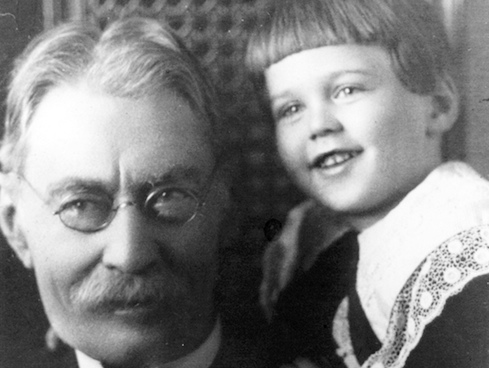So Long Are You Young

Full Description
19th-century German Jewish dry-goods merchant? Why could the founder of Panasonic and many other Japanese business titans recite by heart that same Jewish merchant’s obscure poem?
These conundrums have intrigued Marin County filmmaker Judith Schaefer for years, and she unravels them in her eloquent and heartfelt documentary that tells the dual story of Samuel Ullman, an unusual Jew from the American South, and his remarkable poem, “Youth.” Ullman wrote the poem when he was 77 as a kind of homily: “Youth is not a time of life/It is a state of mind...We grow old by deserting our ideals.”
General Douglas MacArthur is said to have kept a framed copy of the poem in his Tokyo office, and its hopeful words spoke to a generation of postwar Japanese eager for new watchwords to live by. The poem’s astonishing journey and its author’s equally fascinating contributions to the Jewish and African American communities of the South are touching revelations in this lovely ode to the power of poetry
Filmmaker Bio(s)
Born and raised in Valley Stream, Long Island, I am the son of Kennedy / Stevenson liberal parents -- a pinkish-diaper baby, you might say, or a fellow-travelling toddler. I was brought up on Yiddish folk songs, the Weavers, Burl Ives and Nichols and May. I went to Hebrew school, got bar mitzvahed, didn't believe in god, and went to synagogue reluctantly, when at all.
In 1969 I enrolled at Brown University, transferred down the hill to the Rhode Island School of Design (Riz-dee), where I studied furniture design, architecture and got my first taste of filmmaking (super-8 silent). I also protested the Vietnam War, canvassed the neighborhoods, and finally dropped out, deciding that I'd been going to school since I was 5 but was drawn to Mark Twain's philosphy : "I never let my schooling get in the way of my education."
After gigs as a coffee-house blues and folksinger, psychiatric aide, Berkeley Free Clinic counselor and administrator, and prisoner rights advocate, I took a course in the basics of 16mm filmmaking and never looked back.
At the first Jewish Film Festival in 1981, (I'd been living in the decidedly goyish Bay Area since 1975) suddenly had the feeling I was at a family reunion, listening to other audience members debate, argue and expound on the fascinating array of films shown at the festival. My Jewish heritage began to resurface.
Unbeknownst to me until at least mid-way through the 7-year production of TELL THE TRUTH AND RUN, the making of this film tapped into my somewhat dormant sense of Jewish identity. Seldes's moral outrage at social injustice and apathy, resonated with my own feelings about similar themes. The outrage, I ultimately recognized, was decidedly Jewish in nature -- not religious in the least, but certainly according to the teachings and traditions of my parents and forbears. It was through this film, I hoped, that I could put that outrage into a productive form, one that could maybe make some social and political impact. You judge.,
Director(s)
Country(ies)
Language(s)
Release Year
Festival Year(s)
Running Time
59

